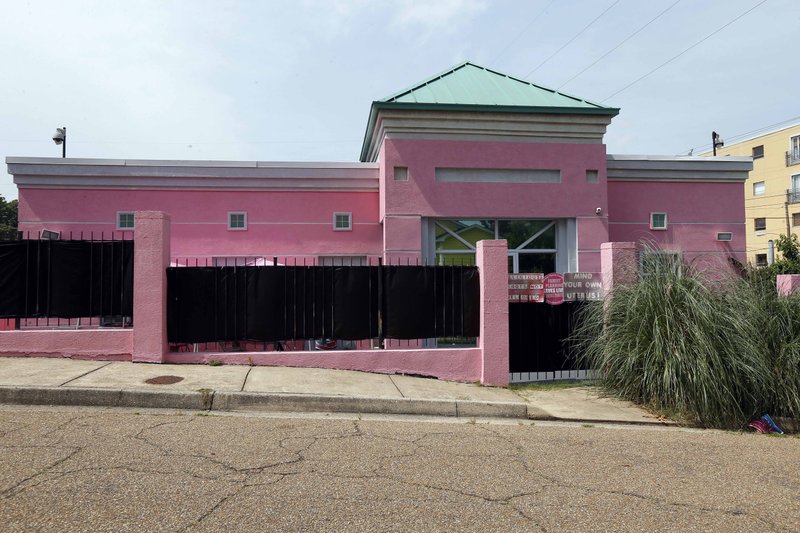JACKSON, Miss. -- Mississippi lawmakers on Thursday passed what would be the nation's most restrictive abortion law, making the procedure illegal in most cases after 15 weeks of pregnancy.
The state's only abortion provider pledged to sue, and the attorney general said he expected a tough legal battle ahead.
Lawmakers in the Republican-controlled Legislature appeared not only to expect but also to encourage such challenges in hopes the issue will eventually make its way to the U.S. Supreme Court.
Under the court's 1973 Roe v. Wade ruling establishing a nationwide right to abortion, states were permitted to restrict abortions after viability -- the point when the fetus has a reasonable chance of surviving under normal conditions outside the uterus. The ruling offered no legal definition of viability, saying it could range between 24 and 28 weeks into a pregnancy.
The Mississippi measure "seems like a pretty simple bill designed to test the viability line that the Supreme Court has drawn," said David Forte, a law professor at Ohio's Cleveland State University.
The House voted 75-34 in favor of the bill, and Gov. Phil Bryant, a Republican, said again Thursday that he would sign it. Because of necessary paperwork, it won't reach his desk until next week. The Senate passed the measure Tuesday.
"We are protecting more women, we are protecting more children, by moving from 20 to 15 weeks," said House Judiciary B Committee Chairman Andy Gipson, a Braxton Republican. "By 15 weeks, you have a child in the womb who has a heartbeat, who for all practical purposes has taken on the form a person," Gipson said.
Abortion-rights groups immediately spoke out against the bill, saying it is not legally or medically sound.
"We certainly think this bill is unconstitutional," said Katherine Klein, equality advocacy coordinator for the American Civil Liberties Union of Mississippi. "The 15-week marker has no bearing in science. It's just completely unfounded and a court has never upheld anything under the 20-week viability marker. ... We expect that this bill will be challenged in court and it will lose and, in the process, Mississippi will lose thousands upon thousands of taxpayer dollars."
There are two exceptions to House Bill 1510: if the fetus has a health problem that would prevent it from surviving outside the womb at full term, or if the pregnant woman's life or a "major bodily function" is threatened by the pregnancy. Pregnancies as a result of rape and incest are not exempt.
It's unclear if a 15-week ban will move forward elsewhere. In Louisiana, a bill has been filed for the upcoming legislative session. Gipson said lawmakers in Texas, Georgia, and "some Midwestern states" are exploring the idea. An appeals court in 2015 struck down efforts in North Dakota to ban most abortions after six weeks, when a fetus develops a detectable heartbeat, and in Arkansas after 12 weeks.
Mississippi Democratic Attorney General Jim Hood said Thursday that he expected legal challenges and noted that less-restrictive measures banning abortion after 20 weeks of pregnancy have been struck down in other states. The U.S. Senate earlier this year rejected such a ban nationwide when supporters couldn't reach a 60-vote supermajority to act.
Mississippi's 20-week ban has never been legally challenged, in part because the state's only abortion clinic, the Jackson Women's Health Organization, doesn't perform abortions that late in pregnancy. According to state Department of Health statistics, 85 percent of abortions in Mississippi took place before 12 weeks in 2016.
But Diane Derzis, who owns the clinic, has said the clinic provides abortions as late as 18 weeks after pregnancy. Most of Mississippi's 2,500 abortions in 2015 took place at the clinic. Derzis said before the bill was passed that she would sue.
Abortion opponents have been encouraged by a 2007 Supreme Court case, Gonzalez v. Carhart, that allowed bans on what some call partial-birth abortions, an abortion performed relatively late in pregnancy in which the living fetus is extracted in stages through the birth canal. The opponents believe the decision opened a window for states to restrict abortion before a fetus is viable.
"We would welcome the court to clarify the extent to which states can regulate abortions, particularly with regard to maternal health," said Jameson Taylor, acting president of the Mississippi Center for Public Policy, a conservative-leaning group that helped lawmakers write Mississippi's bill.
A Section on 03/09/2018
